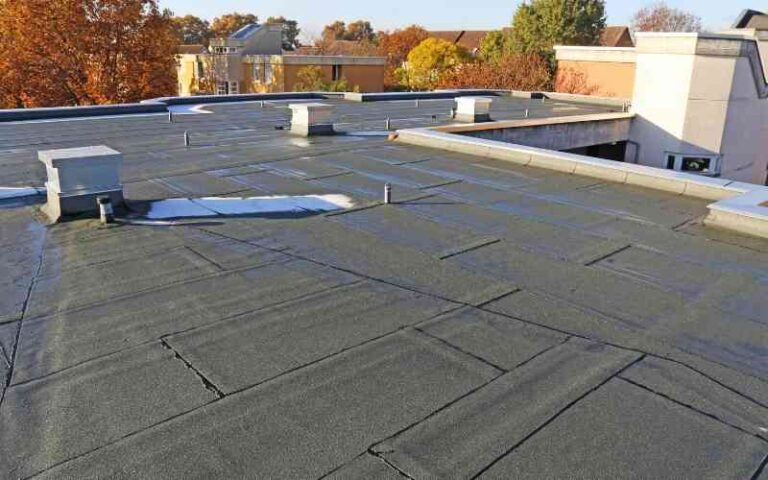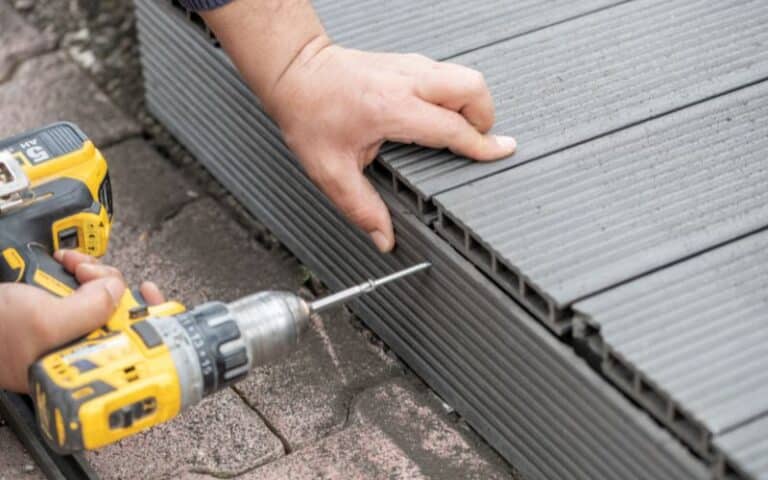You might know about certified roof inspection, but have you ever wondered what certificates roofers need?
Whether you want to become a professional roofer or need to hire one, you should know about certificates that matter for roofers.
Since the roof is a vital and expensive structural component of your property, you want to be sure that you are hiring only the best roofers for the job. Roofers who are certified and licensed are among the best candidates you can choose.
Selecting a roofing contractor who has the right certifications might seem daunting at first. However, the extra effort involved might be worth it if you hire roofing contractors with manufacturer certifications. Manufacturer certifications have very stringent requirements, due to which only the best in the business can qualify.
Ready for a Roofing Quiz?
Understanding Manufacturer Certifications
Certifications issued by leading roof material manufacturers like GAF, CertainTeed, and Owens Corning have been highly sought after. Roof material manufacturers are fully aware that installation quality directly impacts roof performance. The roof will be able to function as intended only if installation quality is up to par.
Hence, these companies award prestigious certifications only to those roofing contractors who fulfill their strict criteria.
Roofing Contractor Certifications – What They Mean
Roofing contractors cannot apply for manufacturer certifications whenever they want to. Manufacturers provide these certifications on invitation only. Also, the roofing contractor will undergo rigorous scrutiny to check whether they fulfill all necessary requirements.
The roofing contractor should fulfill all insurance and state/local licensing requirements. They should have a history of implementing best practices while demonstrating the highest sense of professional responsibility.
To be awarded a roof manufacturer certification, the contractor must show that they have a comprehensive understanding of roof installation best practices. They should also have in-depth knowledge of all products made by the manufacturer.
The roofing contractor should have long experience in the roofing industry, during which they have provided excellent customer service and superior craftsmanship.
Why Manufacturer Certification Matters
If you choose your roofing contractor based on manufacturer certifications, then you can avail the following benefits.
- You can hire a suitable person who has profound knowledge of roofing solutions and best practices for a critical job.
- Since manufacturer certifications are issued only to those roofing contractors who demonstrate the highest level of proficiency, roof installation quality will likely be optimal. Hence, there is a smaller chance that the roof will prematurely develop serious defects that require costly repairs.
- Roof material manufacturers offer extended warranty coverage only on those roofs that manufacturer-certified roofing contractors install. The reason for this is that installation quality and workmanship play a big role in extending the roof’s useful life. Therefore, you will need to hire a manufacturer-certified roofing contractor if you want extended warranty coverage on your roof.
If you go for a certified and licensed roofer, then you will be protected against poor workmanship and unethical practices. Certain unscrupulous people posing as roofers often try to lure unsuspecting customers with rock-bottom rates. However, you do get what you pay for.
So although clients may initially pay lower rates, they will incur much greater losses sooner rather than later due to poor workmanship, inferior materials and even outright fraud. As you would expect, such operators have no certifications and are unlicensed.
Hiring a certified roof contractor entails several key benefits like insurance coverage, extended warranties, and expert installation. Customers who don’t hire certified roofers can miss out on such benefits.
Although certain states don’t require roofers to have a license, it is in the client’s best interests to hire a licensed roofer.
Insurance Coverage
Insurance coverage is absolutely necessary for the roofing business since a lot can potentially go wrong. In case of an adverse event (the insurance policy covers that), the roofing contractor and customer can be safeguarded against massive financial losses.
Two types of insurance plans are advisable, at the very least, for roofing contractors. These include liability insurance and worker’s compensation insurance.
Liability insurance will pay for any damage to the client’s property during the course of roofing work. The roofing contractor can avoid paying for damages that might occur as a result of the project if there is liability insurance. If the roofing contractor says that they have liability insurance, you should see it to confirm that it has not expired.
Worker’s compensation insurance provides financial protection for roofing workers if they sustain injuries while completing the project. When there is worker’s compensation insurance, both the roofing company and the client can be protected from lawsuits that could arise due to worker injuries on the client’s property.
Hiring licensed and certified roofing contractors mitigates risk. It reduces the chance of errors that could cost clients a lot of money as well as project delays. There is a much better chance that the job will be done correctly with a certified roofer.
With non-certified roofers, there is a higher chance that the job may not be done correctly. If that is the case, then it will require costly remediation, extra effort, and more time to complete the job.
Another major benefit of being certified is that it indicates sufficient field experience. Almost any kind of certificate for roofers requires experience. So having a certificate is a good way of showing that you are experienced, qualified and proficient at your job.
Certified Roofing Contractors
The most prestigious roofing certifications are those issued by roof material manufacturing companies. To qualify for such a certificate, roofers need to have a history of high expertise, great workmanship, and impeccable roof installation technique.
Thus, manufacturer certifications are not easy to obtain. In other types of certificate programs, you can probably take training classes over the weekend for a few months before you earn the certificate. Roof manufacturer certifications are very different.
Manufacturing companies don’t award certifications that easily to contractors. Before awarding the certificate, they want to ensure that the roofing contractor consistently offers top-quality service.
Certifying the roofer is an acknowledgment of their work skills and a statement that they have been trained according to the company’s stringent standards.
Hence, the company wants to make sure that it awards its certificates to the most reliable and dependable roofers who work scrupulously with meticulous attention to detail.
To this end, company representatives may pay a surprise visit to a certified contractor’s job site to check whether or not company standards are being conformed to. If company standards are not being met or customer complaints about the contractor, then the company can revoke the contractor’s certification.
Roof installation, repair, and maintenance work often require a sizable investment. Hence, customers want to be certain that the job is done perfectly and getting the most value for money. The best way of ensuring this is to hire roofing contractors who are certified by leading roof material manufacturers like Owens Corning and GAF.
Having a certified roofing contractor can give great peace of mind to clients since they are gaining several key benefits. Since the manufacturing company extensively trains certified roofing contractors, scrutinized meticulously for top-class workmanship, and insured, clients can mitigate risks.
Bottom Line
Roofing contractors should aim for roof material company certifications since this can greatly boost their reputation.
However, to obtain company certifications, they must undertake extensive training, conform to the company’s strenuous standards, and complete consistently good roof projects over a long period to meet the arduous certification requirements.






